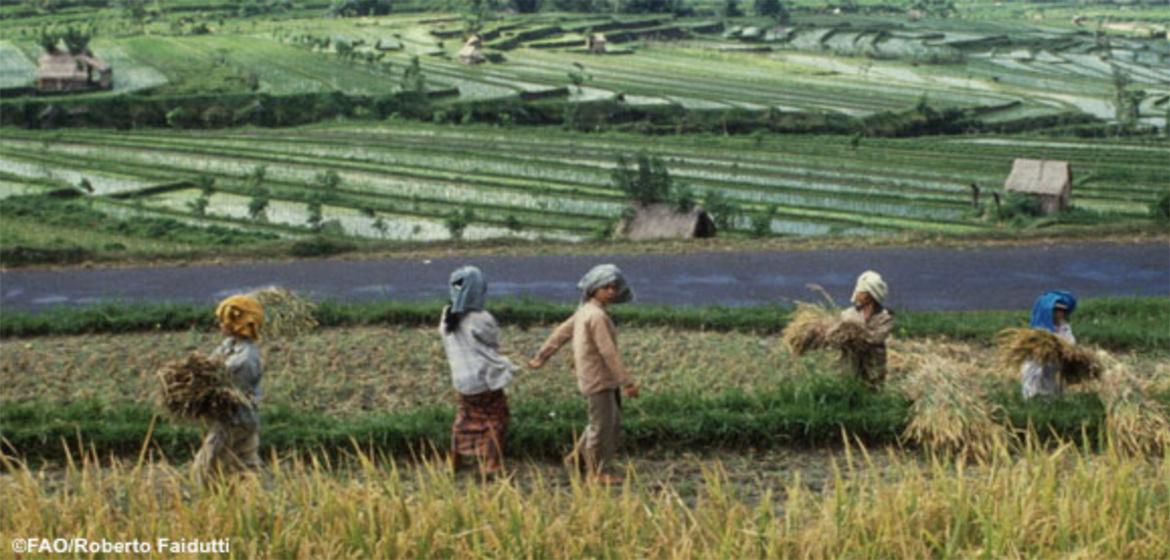Welcome to the Family Farming Knowledge Platform (FFKP) Newsletter!
The FFKP gathers digitized quality information on family farming from all over the world; including national laws and regulations, public policies, best practices, relevant data and statistics, researches, etc.
Issued once a month, the FFKP Newsletter is an opportunity to keep you up-to-date with the latest publications, articles, projects, activities and events related to family farming and included in the Platform's database.
If you wish to unsubscribe from future communications please .
Highlights
|
|
The FFKP Network helps connect key players from the same country or region, encouraging them to explore areas of common interest that may serve as a basis to establish partnerships and collaborations among its members. By joining the FFKP Network, members will be given the opportunity to get international visibility for their organization/association/cooperative through the Family Farming Knowledge Platform |
|
Latest from Africa
|
|
Tens of millions of smallholder farmers across Africa are facing a new foe in their fields: the Fall Armyworm (FAW). Newly arrived from the Americas, this insect prefers to eat maize, but can live on over 80 plant species. Farmers are alarmed by the ragged maize leaves in their fields caused by the FAW larval feeding, and worry about yield losses and their food security. The good news is that smallholder farmers in the Americas have been managing FAW for centuries |
|
Latest from Asia and the Pacific
|
|
This report is a compilation, which captures the experiences of the Project Team during their engagement with their respective governments and various organizations over the 5 years of project implementation. Such experiences were compiled for, shared, and discussed at a workshop specifically organised by the FAO FPAM project and held in Pahia, New Zealand |
|
Latest from Europe and Central Asia
|
|
This book was prepared under the framework of TCP/UZB/3501: Institutional capacity building to develop organic agriculture and to promote good agriculture practices in Uzbekistan to provide guidance to the stakeholders. It brings together the status of organic agriculture in Uzbekistan including, market, legal standards, methods, experiences and useful methods and basic information that can be of immediate use for identifying problems |
|
Latest from Latin America and Caribbean
|
|
Las compras públicas son mecanismos de adquisición de productos o servicios para abastecer a las instituciones y programas financiados o ejecutados por el Estado (consumo de organismos públicos, programas sociales, etc.). Pero también se reconocen a las compras públicas como un instrumento de política que puede ser utilizado para impulsar el desarrollo de determinados sectores, como por ejemplo las pequeñas y medianas empresas o la agricultura familiar |
|
Latest from Near East and North Africa
|
|
Since 2009, Regional Conferences represent the FAO’s highest governing bodies at the regional level and play a role of strategic importance in the definition of priority areas of FAO's work globally.The priorities set by the regional conference mirror the priorities of all Member Countries: to sustainably develop agriculture and enhance food security. All actions identified within these objectives feed into the roadmap of the Organization’s work and mission in the region |
|
Latest from Our Contributors
|
|
GUPAP initiative came within a project that was funded by SDC and implemented by Oxfam and RUAF in cooperation with key local organizations (2013-2017). ‘Facilitating urban and pri-urban agriculture in Gaza’ project was implemented with the aim to increase income for men and women engaged in small-scale urban and pri-urban agriculture in the Gaza Strip |
|
Latest from the Smallholders Data Portrait
|
|
The Smallholder Farmers’ Dataportrait of the ESA Small Family Farms Team is a comprehensive, systematic and standardized data set on the profile of smallholder farmers, bringing out the characteristics of family farms across the world. It is designed in such a way that differences between countries and regions can be revealed easily |
|
Source:
Related to SDG 15: Life on land, SDG 1: No poverty, SDG 2: Zero hunger and SDG 13: Climate action



